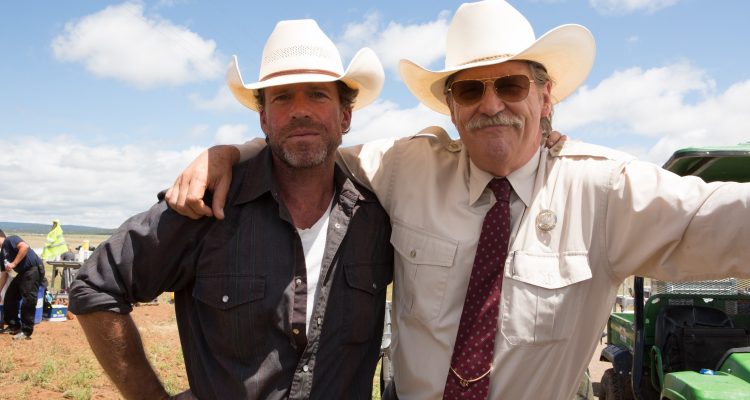Taylor Sheridan is currently on a helluva run, and frankly, we hope it never ends. Starting out in the business as an actor, he was always working on scripts, but the ones that made it to the big screen didn’t follow any conventional rules. “Sicario,” “Hell Or High Water,” and “Wind River” — which he directed, and just premiered at Sundance — all follow Sheridan’s vision where morality is grey, and sometimes, justice never comes. And he’ll be the first to admit there’s a common thread that follows each picture.
READ MORE: Ranking Every Best Picture Oscar Nominee Of The 21st Century
Speaking with Esquire, Sheridan explained how fatherhood and America itself form the common core between these three movies, in which the questions of one film are sometimes answered in another. Here’s what he had to say:
They are absolutely a thematic trilogy. If someone were to watch ‘Sicario,’ watch ‘Hell or High Water’ and then watch ‘Wind River’ — which makes for about a six-hour downer day — they’re going to see things that were introduced in ‘Sicario’ and answered in ‘Wind River,’ and themes that were brought up in ‘Hell or High Water’ that are resolved in Wind River, even though the stories are in no way connected.
What I wanted to do was explore the modern American frontier. I wanted to explore the consequences of the settlement and assimilation of that land 130 years later. How much has really changed? And how much hasn’t? And it’s not unique to America. You can make the same study in South America. You can make the same study in Europe. It was all settled, and it was all taken from someone, or someone was assimilated or pushed out. It happened so recently here that the waters are still muddy.
I wanted to explore fatherhood, and the failure of it. I’m terrified and fascinated by the thought of ‘How does someone move on from a tragedy without ever getting closure?’ I don’t know what closure means. At some point in the ’80s, everyone decided they needed fucking closure to move on, which sounds wickedly selfish. How can I divorce myself from the emotion of this relationship so I can be happy again? Well maybe you can’t. Maybe you’re not supposed to. Maybe you’re supposed to be sad about it — forever. So, those are things in all three of these films.
It’s smart stuff from a filmmaker who is keeping hope alive that big ideas can be contained in mainstream(ish) fare. “Hell Or High Water” is up for four Oscars this weekend, including Best Original Screenplay, and if Sheridan won, we wouldn’t be too busted up about it.

